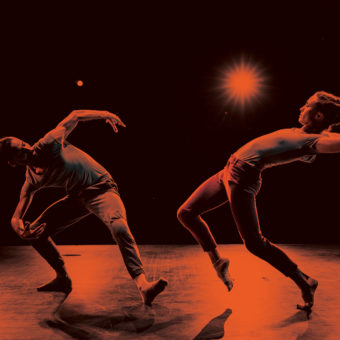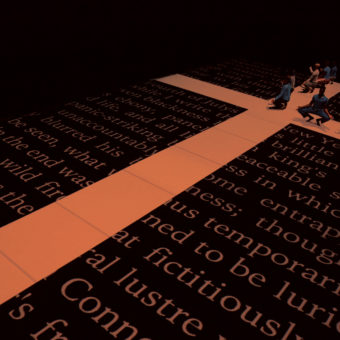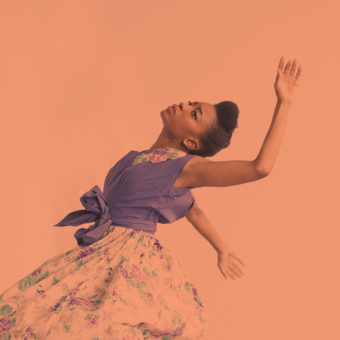SUBSIDIZED TECHNICAL REHEARSAL PROGRAM
LUMBERYARD Center for Film and Performing Arts’ mission is to protect and ensure artistic innovation by facilitating and advocating for access to experimentation. To this end, we have built a new model, the Subsidized Technical Rehearsal Program (“STRP”), for the development of contemporary dance and performance, with a focus on helping American artists affordably bridge the time between studio and stage.
In 2010, LUMBERYARD launched a strategic planning process with an evaluation of the needs of the field. Increasingly artists relied on design and technology in their work; yet, the lack of space, time, and resources to experiment has made the transition from studio to stage an insurmountable obstacle. This challenge was weakening the entire performing arts ecosystem. In response, LUMBERYARD built a technical rehearsal program to better offer the space and time artists need, in turn strengthening artists, audiences, and presenters locally, regionally, and nationally.
Through our Subsidized Technical Rehearsal Program (“STRP”), LUMBERYARD serves the artists and presenters that enliven our vibrant contemporary performing arts sector. STRP provides much-needed time, space, resources, and technical capabilities for artists to fully realize new work before it premieres, and the artists we work with in the STRP represent various identities, backgrounds, professional career stages, and approaches. These artists also universally and urgently need time to experiment with design and technology to advance their work.
Designed as an affordable, efficient solution, just two hours north of NYC, we are able to offer technical rehearsal space with minimal overhead for performing arts companies at our campus in the Hudson Valley. Since 2008, LUMBERYARD has hosted 65+ technical rehearsals. We begin consulting with artists months before they arrive to maximize time on site.
NYC presenters—ranging from BAM and the Park Avenue Armory to the Guggenheim, Chocolate Factory, New York Live Arts, Gibney, and Joyce—benefit from work that arrives with lower and more accurate load-in and presentation budgets, while keeping their spaces open for income-generating activities. For many emerging or mid-career artists, presenters are willing to grant them a premiere with the knowledge the work will be audience-ready.
At present, the essential elements of technical rehearsals, which are critical for artists to get back to work, cannot coexist with health protocols for live audiences. We believe dedicating our facility and staff to technical rehearsals is the best way we can support the performing arts industry as it inches toward recovery. Our urgent mission to protect American artistic innovation must take priority at this time. Equitable and affordable access to safe rehearsal facilities, especially now, is essential for a strong American performing arts ecosystem.
Technical rehearsals are resource-intensive. Even before COVID-19, access to them was inequitable -- and even more so now. As budgets at the City’s theaters become more strained—with new safety measures such as HVAC upgrades and other building improvements plus new artist and audience safety measures—combined with the absence of earned income for over a year, the need for subsidized and safe off-site technical rehearsals has never been more urgent. We believe that offering relatively affordable and concentrated time for artists to safely work with design and technology will ensure a more equitable and diverse reopening of our sector.







